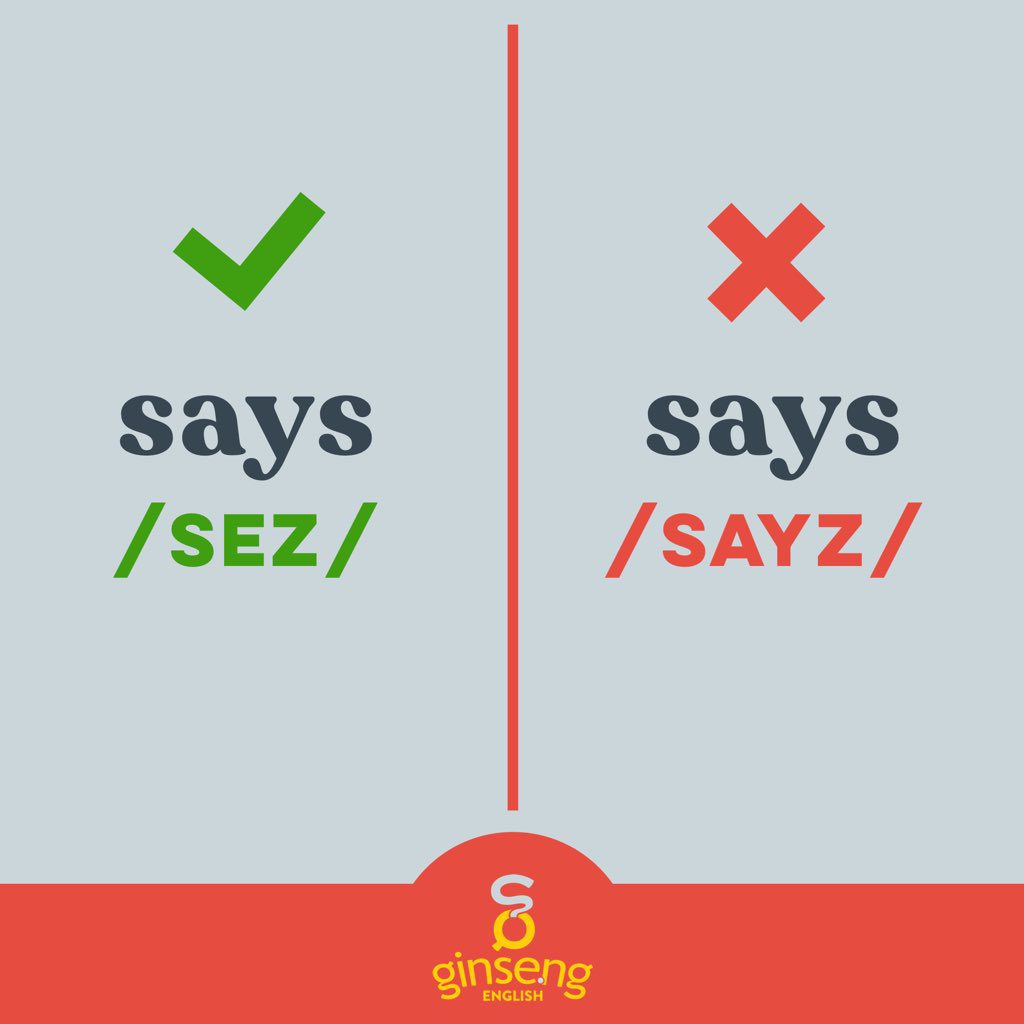Did you know that the vowel sound in SAYS is different than that in SAY?


Many English learners get surprised when they realize that this very common verb, SAY, has slightly different pronunciation in the different forms of this word.
Listen carefully and practice.
Now, do you know what IF YOU SAY SO means?
“If you say so” can have several meanings, depending on context and tone.
- It can mean a very respectful “Okay, I accept your word as an expert,” or “I don’t know, but I’ll take your word for it.”
- It can imply that the listener is not interested in what the other person has to say. Rather than give his/her input, he or she ignores the matter with a remark like this.
- Also used to indicate a weak agreement, it means I won’t argue with you, or I won’t contest your opinion. Unsaid, but implied: “I’m not at all sure you are right,” “It’s only your opinion,” and “I don’t want to fight.”
A: “Eating eggs has made me super-intelligent!”
B: “If you say so.” (the person doesn’t necessarily agree)
More examples:
If you say so , I won’t insist.
“I’m fine, don’t worry about me.” ” If you say so .”
Well, if you say so , Shelley, I’ll make sure he sees a therapist.
The tone of voice would make the meaning clear. 😉
Note:
I did some further research on the pronunciation of “says”. /seiz/ used to be the standard pronunciation of “says” which was gradually replaced by the shorter /sɛz/. The former appears to have survived as a non-standard dialectal form:
- As the linguist Fidelholtz wrote back in 1975 — ‘Frequent words can do exceptional things’. The verb to ‘say’ is a good example of a mundane verb that is used a lot and that does exceptional things. ‘I say, you say, we say, they say’. There’s nothing peculiar here. It’s the so-called third person form that is the problem — this is where the verb falls out of kilter. In Standard English this is pronounced as ‘he/she/it sez’, and not ‘he/she/it says’. So it’s the shortened version ‘sez’ that is standard; the full form ‘says’ is now considered non-standard, dialectal.
